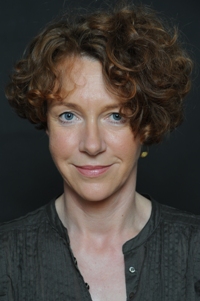A new Germany-EU discourse


Ulrike Guérot
I heard a short speech in Berlin yesterday evening by Ulrike Guérot from the European Council on Foreign Relations at an event organised by Europa Union. The essential gist of her presentation was that, now, 20 years on since the fall of the Berlin Wall (and indeed that’s half as long as the Bundesrepublik existed during the cold war), Germany is on a fast track to escaping from its traditional role as the country that pays for everyone else in the EU. Fair enough, Merkel’s behaviour during the Greece crisis seemed to show that very well, and Germany’s strong growth in the second half of 2010 shows that the economic motor is still doing OK.
But, as Guérot argues in this piece for Open Democracy, Germany’s export strength is not very handy for the rest of the Eurozone, and even as Germany’s own situation improves, the vocabulary used towards the rest of the EU remains much harsher than it used to be.
So – Guérot said last night – Germany needs a new discourse for its relations with the EU and, appealing to the high and mighty of Berlin’s political circles assembled there (and the odd impostor Brit in the corner), everyone ought to do something about it. The essential line was that Germany should offer limited solidarity – i.e. not a bottomless pit, but not complete retreat either. Probably a fair line, but not a simple one to articulate.
So what then, I wondered, will all the people attending last night actually do? I said I would write a blog entry – and this is it. But the others?
I think some inspiration might come from the story about the EU banning sale of eggs by the dozen so comprehensively covered by Nosemonkey. There a team of bloggers, the European Commission delegation, and journalists of the slightly more respectable press, worked in overdrive to set the record straight, and the poor journalism of the Daily Mail actually became the story.
Why not do the same for the discourse in German-EU relations?
Get a bunch of people together, to all read Lakoff, and work out a core set of lines about Germany-EU relations. Then when FAZ writes something inaccurate or simply spiteful, or Bild spits bile, then a team of people can set to work – Guérot talking with academic assurance on TV and radio, and bloggers and experts amplifying those words on the web. In the end some politicians might even listen a little bit.
As the Swedes say Många bäckar små blir till en stor å (Many small brooks will form a big river).
If only there was a coordination of those involved in EU affairs and slightly pro-European!
Then this couls possibly work. But I think the German EU people seem to be divided between the resource-weak idealist-activist and the resource-rich academics like U Guerot and other thinktanks/foundations. Will these two ever manage to build a common line?